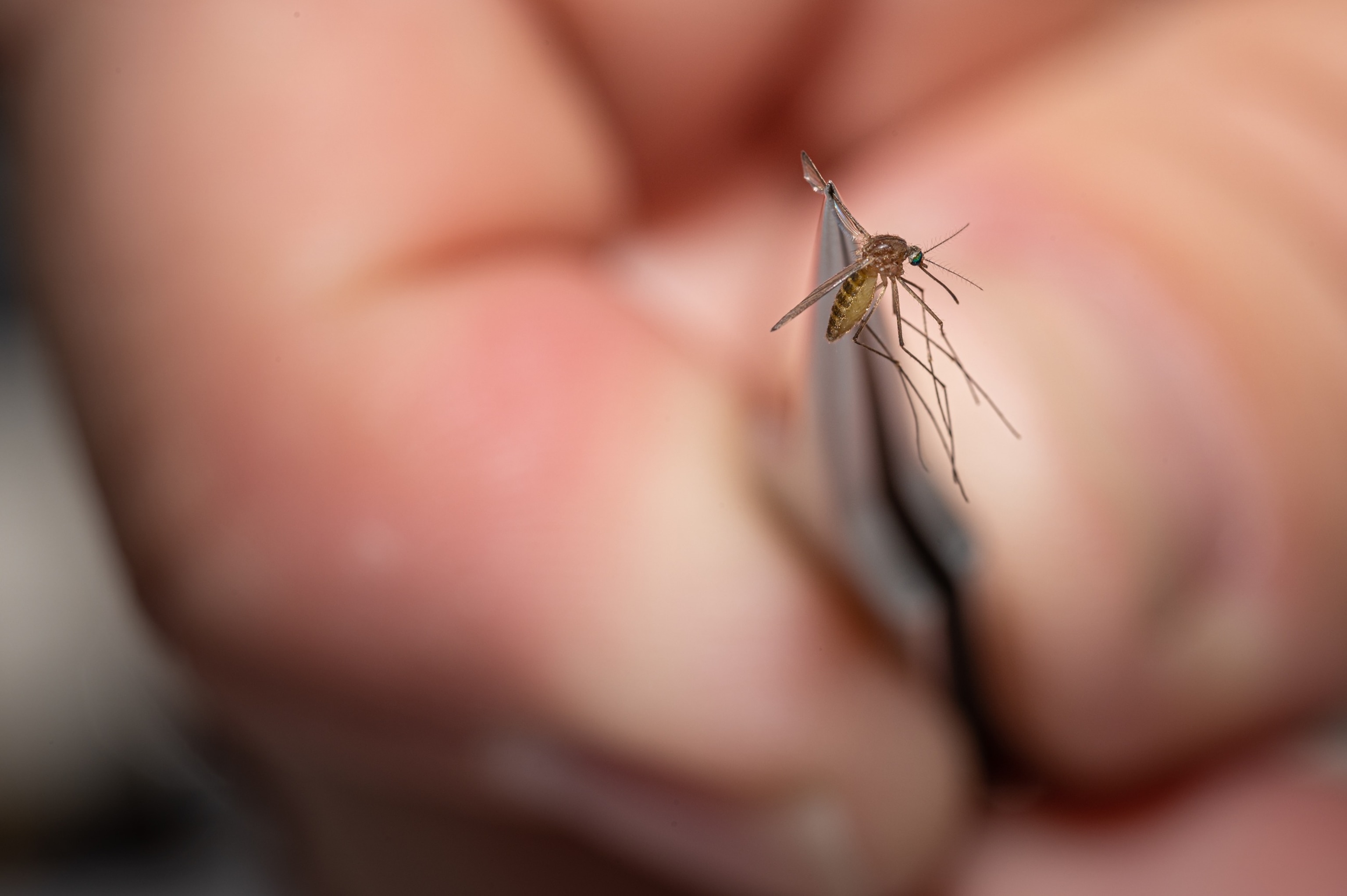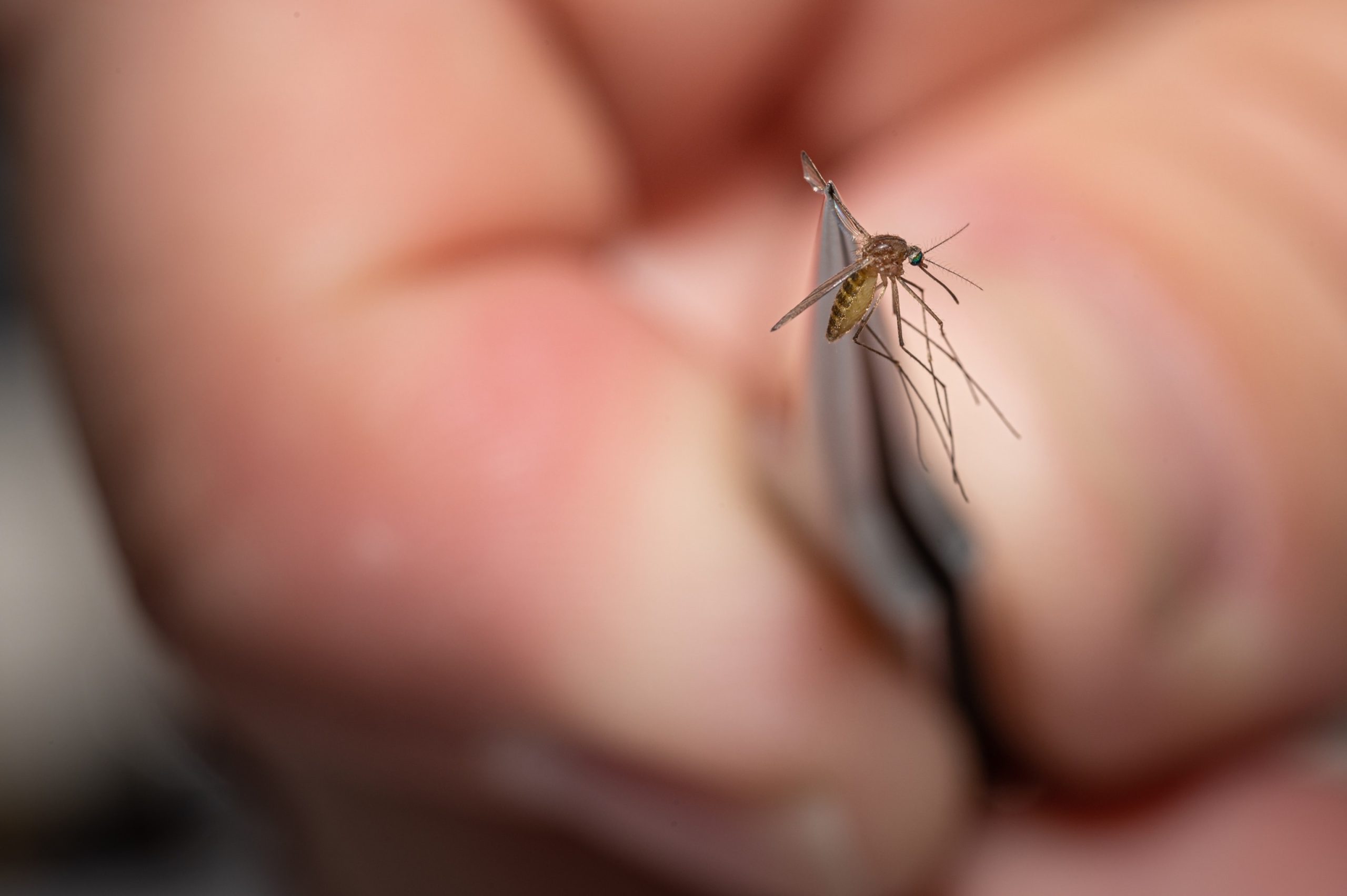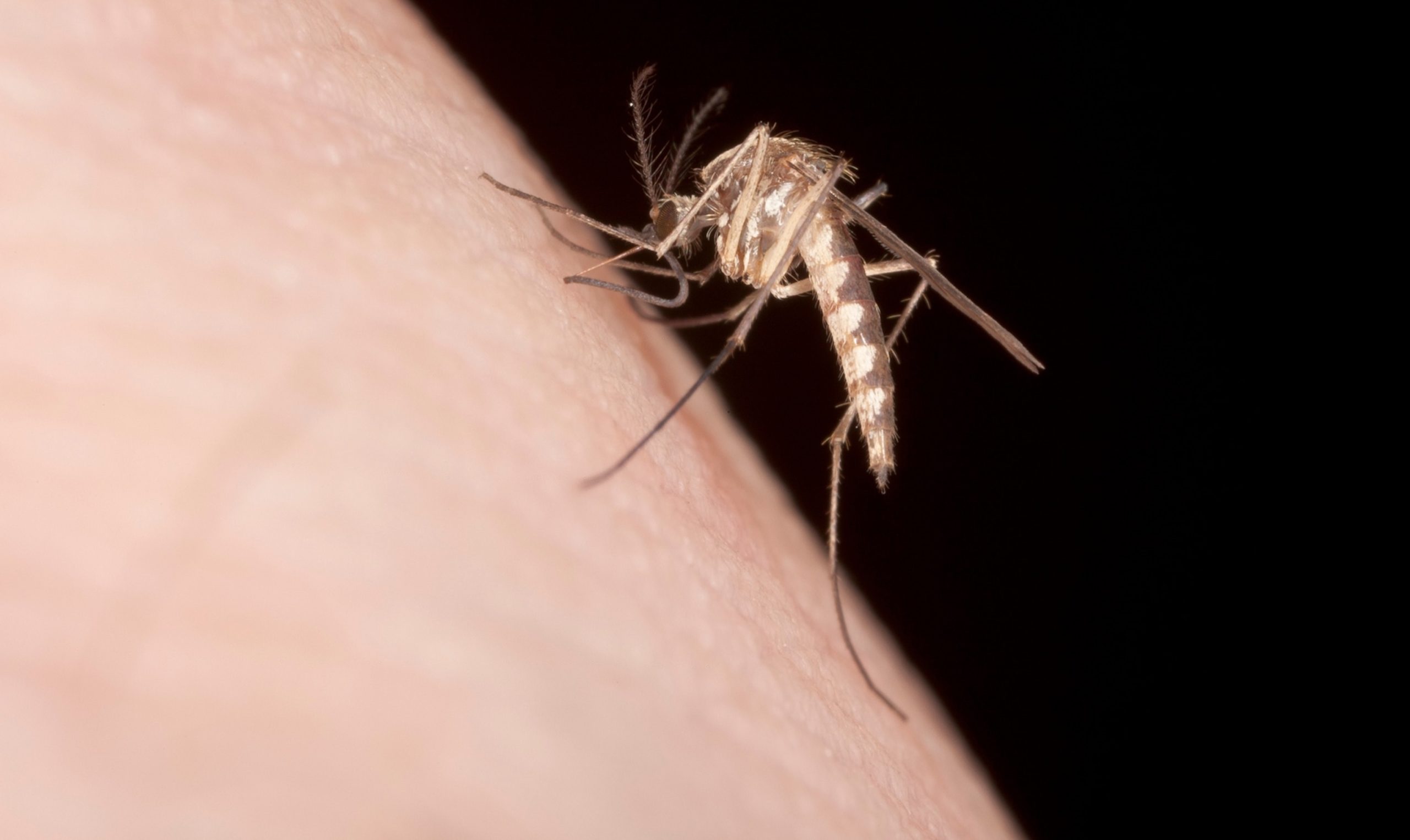New York state reported its first case of eastern equine encephalitis in nearly a decade on Friday.
The rare mosquito-borne virus was detected in Ulster County, the New York State Department of Health said. The individual is hospitalized, it said.
The Ulster County Department of Health is currently investigating the case, which marks the first case of EEE confirmed in New York state since 2015, health officials said.
“Eastern equine encephalitis is a serious and fatal mosquito-borne disease with no vaccine,” New York State Health Commissioner Dr. James McDonald said in a statement. “Even though temperatures are getting cooler, mosquito-borne illnesses are still a risk and New Yorkers must be cautious.”

Matthew Vanderpool, environmental health specialist and entomologist for the Louisville Metro Department of Public Health and Wellness, displays a mosquito collected earlier in the day, Aug. 25, 2021 in Louisville, Ky.
Jon Cherry/Getty Images
The human case comes after a case of EEE was confirmed in a horse in Ulster County in August, the state health department said. Earlier this month, two emus in New York’s Rensselaer County also tested positive for the virus, which does not spread directly from birds to humans, the department said.
The latest human EEE case in New York brings the national tally to at least 11 so far this year, according to an ABC News tally. The national yearly average is 11, with most cases occurring in eastern or Gulf Coast states.
Beyond New York, cases have been reported in at least six other states so far this year: Massachusetts, with four; New Hampshire, with two; and, with one each, New Jersey, Rhode Island, Vermont and Wisconsin.
Between 2003 and 2023, there have been at least 196 EEE cases reported in the U.S., including 176 hospitalizations and 79 deaths.
The best way to prevent infection from the disease is to protect yourself from mosquito bites, including by using insect repellant, wearing long-sleeved shirts and pants, treating clothing and gear and taking steps to control mosquitoes indoors and outdoors.
“With the first confirmed human case of eastern equine encephalitis in Ulster County, I urge residents to take the recommended precautions to prevent mosquito bites and the risk of infection,” Ulster County Executive Jen Metzger said in a statement.
Most people infected with EEE do not develop symptoms. For those who do, symptoms can include fever, headache, vomiting, diarrhea, seizures, behavioral changes and drowsiness, according to the U.S. Centers for Disease Control and Prevention.
Approximately a third of all people who develop severe cases die, according to the CDC.
The first human case of Eastern Equine Encephalitis (EEE) has been reported in New York State after nearly 10 years, raising concerns about the potential spread of this rare but deadly virus. EEE is a mosquito-borne illness that can cause inflammation of the brain, leading to symptoms such as fever, headache, and confusion. In severe cases, EEE can result in coma, seizures, and even death.
The recent case in New York State serves as a stark reminder of the importance of taking precautions to prevent mosquito bites and reduce the risk of contracting EEE. While the virus is rare, it is important for individuals living in areas where EEE is present to be vigilant and take steps to protect themselves and their families.
One of the most effective ways to prevent EEE is to avoid being bitten by mosquitoes. This can be done by using insect repellent, wearing long sleeves and pants when outdoors, and avoiding outdoor activities during peak mosquito hours, which are typically dawn and dusk. Additionally, it is important to eliminate standing water around homes, as this can serve as breeding grounds for mosquitoes.
In light of the recent case in New York State, health officials are urging residents to be aware of the symptoms of EEE and seek medical attention if they experience any of them. Early detection and treatment are crucial in preventing severe complications from the virus.
It is also important for individuals to be aware of the risks associated with EEE and take appropriate precautions when traveling to areas where the virus is present. This includes staying in air-conditioned or screened-in accommodations, using bed nets if sleeping outdoors, and taking preventive medication if recommended by a healthcare provider.
While the recent case of EEE in New York State is concerning, it is important to remember that the virus is still rare and the risk of contracting it remains low. By taking simple precautions to prevent mosquito bites and being aware of the symptoms of EEE, individuals can reduce their risk of infection and protect themselves and their loved ones from this potentially deadly illness.



